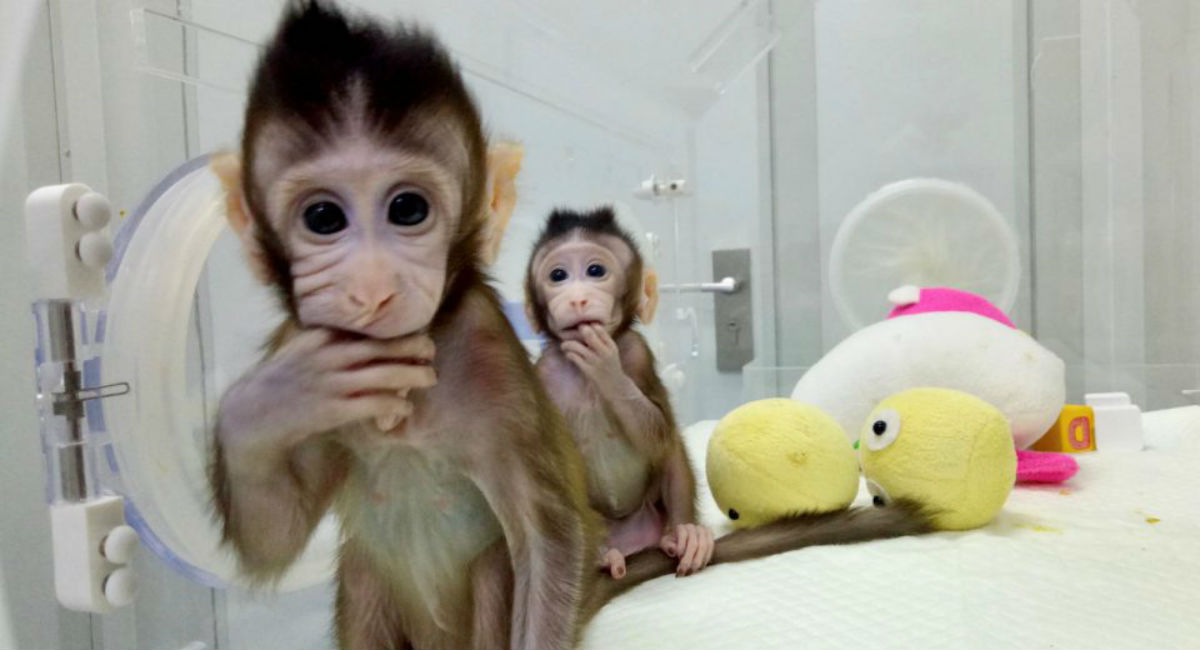
First cloned monkeys born in China
But scientists disavow any interest in human cloning
The first cloned monkeys made with somatic cell nuclear transfer (SCNT) were born recently, according to Chinese scientists.
Although Zhong Zhong and Hua Hua, two genetically identical long-tailed macaques, are not the world's first cloned monkeys, they are the first to be born using SCNT. This technique involves inserting DNA from one monkey into an enucleated egg of another to create an embryo.
Dr Mu-ming Poo, co-author of the research and director of the Chinese Academy of Sciences’ Institute of Neuroscience, says that a population of genetically identical monkeys will be very useful for genetic research and drug development.
The results were published in the journal Cell.
The first successful SCNT monkey clones immediately sparked interest in in the dream of human cloning. Dr Poo told The Guardian:
“There is now no barrier for cloning primate species, thus cloning humans is closer to reality. However, our research purpose is entirely for producing non-human primate models for human diseases; we absolutely have no intention, and society will not permit, this work to be extended to humans.”
The process is quite inefficient at the moment. In the Chinese experiment, 79 embryos were created and implanted into 21 surrogates. Only two live births resulted.
“The work in this paper is not a stepping stone to establishing methods for obtaining live born human clones,” commented Professor Robin Lovell-Badge, of the Francis Crick Institute, in London. “This is so inefficient, so hazardous and unsafe, that I am not sure it is really justified, to be honest.”
Creative commons
https://www.bioedge.org/images/2008images/FB_monkey_clones.jpg
china
cloning
